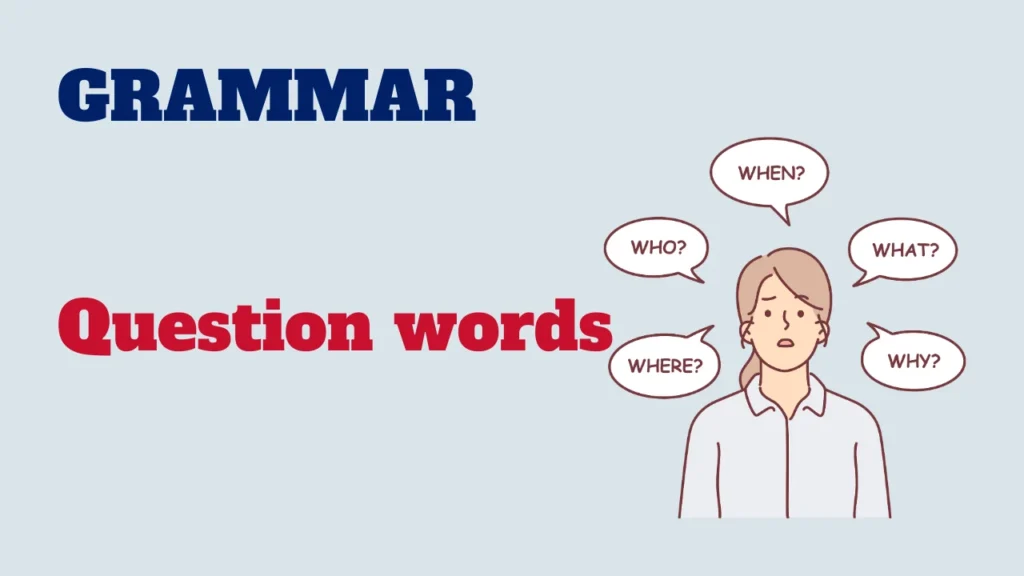Question words, also known as interrogative words, are crucial in forming questions and seeking information in English. These words help us inquire about various aspects of a situation, person, or thing.

In this grammar lesson, we’ll explore common question words, their usage, and how they contribute to effective communication.
Common question words:
Who:
Used to ask about a person’s identity or role.
Example:
Who is coming to the party tonight?
What:
Inquires about a thing, action, or situation.
Example:
What are you reading?
When:
Asks about the time or moment an event occurs.
Example:
When is the next train arriving?
Where:
Inquires about the location or place.
Example:
Where did you find the lost keys?
Why:
Seeks the reason or purpose behind an action.
Example:
Why are you upset?
Which:
Used to select from a specific set of options.
Example:
Which color do you prefer?
Whose:
Inquires about ownership or possession.
Example:
Whose car is parked outside?
Whom:
Used to ask about the object of an action.
Example:
Whom did you invite to the event?
How:
Asks about the manner, condition, or means.
Example:
How did you learn to play the guitar?
Using question words:
Forming questions:
Question words typically begin interrogative sentences.
Example:
Where is the nearest grocery store?
Seeking information:
Question words help gather specific details or clarification.
Example:
What time does the movie start?
Common mistakes to avoid:
Confusing “Who” and “Whom”:
Incorrect: Who did you give the book to?
(Correct: Whom did you give the book to?)
Misusing “Whose” and “Who’s”:
Incorrect: Who’s jacket is this?
(Correct: Whose jacket is this?)
Question words are essential tools for effective communication, enabling us to gather information, seek clarification, and engage in meaningful conversations. By mastering the use of these words, you enhance your ability to ask precise and relevant questions. Keep practicing, and soon, incorporating question words will become second nature. Happy learning!



